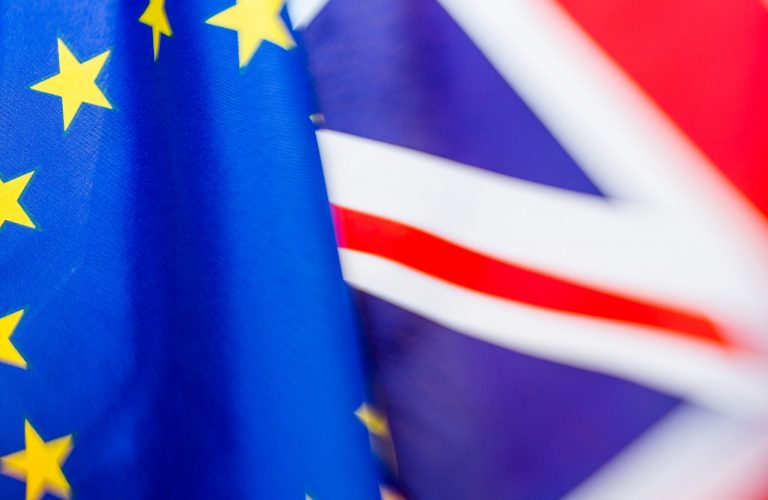Soeben hat das Europaparlament mit übergroßer Mehrheit seine Position für die Verhandlungen über die zukünftigen Beziehungen mit Großbritannien verabschiedet. Der Beschluss wurde gemeinsam von allen pro-europäischen Fraktionen erarbeitet und enthält klare Positionierungen in allen Aspekten der zukünftigen Beziehungen. Das Europaparlament macht damit klarere und schärfere Aussagen zum fairen Wettbewerb (“level playing field”) als die EU-Kommission im Bereich der Finanzmärkte und Finanzkriminalität.
Dazu erklärt Sven Giegold, Sprecher von Bündnis 90/Die Grünen im Europäischen Parlament:
“Die Zeit der britischen Sonderbehandlung ist vorbei. Der Versuch der britischen Regierung, ihren Finanzplatz London für Jahrzehnte permanenten und unwiderrufbaren Zugang zum Europäischen Finanzsystem zu geben, ist schon dreist. Die EU wird sich die Entscheidung, welche britischen Finanzmarkt-Regeln mit den europäischen Regeln vereinbar sind, nicht aus der Hand nehmen lassen. Äquivalenz ist kein Dauer-Abo, sondern ein widerrufbares Privileg. Was für alle Länder außerhalb des Binnenmarktes heute schon gilt, wird auch für Großbritannien gelten. Wenn Großbritannien von den europäischen Regeln abweicht, muss es damit rechnen jederzeit den Zugang zum europäischen Finanzmarkt zu verlieren.
Mit seinem heutigen Beschluss legt das Parlament den Finger auch in die Wunde der britischen Steueroasen. Schon heute werden in den britischen Überseegebieten gezielt europäische Regeln unterboten. Das Europaparlament hat heute klar gemacht: Wer weiter Steueroasen betreibt, kann nicht gleichzeitig Zugang zum EU-Finanzmarkt haben. Weder Steueroasen in der Karibik noch noch eine an der Themse werden wir akzeptieren.”
———-
Die entscheidenden Ausschnitte aus der Post-Brexit-Resolution des Europaparlaments (meine Hervorhebungen, leider bisher nur auf Englisch erhältlich)
– commitments on services should be made with the aim to deliver a level of liberalisation in trade in services well beyond the parties‘ WTO commitments, building on recent EU FTAs, while safeguarding the high quality of Union’s public services in accordance with the TFEU and in particular Protocol 26 on Services of General Interest; in addition, audio-visual services should be excluded from provisions related to liberalisation; reiterates that under an FTA market access for services is limited and always subject to exclusions, reservations and exceptions; all modes of supply of services should be covered, including commitments on the movement of natural persons across borders (Mode 4) and provisions, linked to EU rules and the respect for equal treatment of workers and recognition of professional qualifications; insists that the arrangements should include provisions on market access and national treatment under host state rules to ensure that the EU services providers are treated in a non-discriminatory manner, including with regard to establishment; underlines that the new arrangements should allow for the temporary entry and stay of natural persons for business purposes with the aim to provide services;
– in order to safeguard financial and regulatory stability and to ensure the full respect of the EU regulatory regime and standards and their application, prudential carve-out and limitations in the cross-border provisions of financial services are a customary feature of EU trade agreements and should be included in this one;
- Stresses that, for an FTA to truly promote the EU’s interests, the following objectives should be included in the negotiating directives:
a level playing field is to be guaranteed through robust commitments and enforceable provisions on competition and state aid, relevant tax matters (including the fight against tax evasion, avoidance and money laundering), full respect of the social and labour standards (including equivalent levels of protection and safeguards against social dumping), environmental protection and climate change related standards, promotion of the United Nations’ Sustainable Development Goals, a high-level protection of consumers and sustainable development; the provisions should ensure non-lowering of standards, while empowering both parties to modify commitments over time to lay down higher standards or include additional areas; considers that the commitments and provisions should be enforceable by autonomous interim measures, a solid dispute settlement mechanism and remedies, with a view to dynamic alignment;
- Recalls its determination to prevent any kind of dumping in the framework of the future UK-EU relationship and reminds to this effect that alignment on environmental, labour and social, relevant tax matters and state aid policies is key to prevent it;
- Strongly believes that the UK should adhere to the evolving standards on taxation and anti-money laundering legislation within the EU acquis, including tax transparency, the exchange of information on tax matters and anti-tax avoidance measures, and should address the respective situation of its Overseas Territories, its Sovereign Base Areas and its Crown Dependencies and their non-compliance with EU good governance criteria and transparency requirements;
Equivalence in financial services
- Recalls that UK based companies will lose passporting rights;
62 Considers that market access should be based on equivalence decisions, provided if the EU is satisfied that UK regulatory and supervisory regime and standards are and continue to be fully equivalent to those of the EU, reflecting the provisions agreed upon for a level-playing field; believes that once equivalence has been granted towards the UK, an effective mechanism has to be put in place to guarantee that equivalence is maintained over time and reminds that the EU can withdraw unilaterally the status of equivalent at any moment;
63 Considers that any future framework should safeguard financial stability in the EU and respect its regulatory and supervisory regime and standards and their application, while maintaining the EU regulatory and decision-making autonomy;

